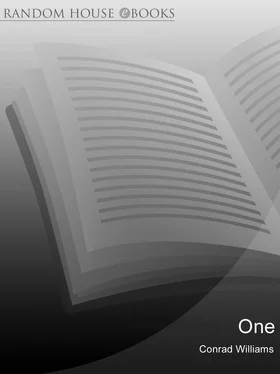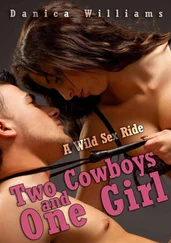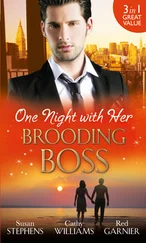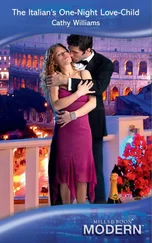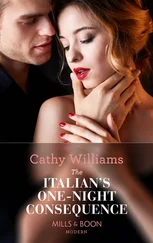He had to make sure. He ran around the back of the building, where lorries were backed up against open bays. He heard the cows again. And other noises. Screams and squeals. This sounded nothing like the deaths that occurred on Kojak . Through a window he saw cows being led to pens. A man with what looked like a large black wand bent over them and pressed it to their heads. There was a hiss, a deep ka-chunk sound, and the animals dropped.
He didn't know whether what he felt then was relief or sickness. It was another kind of murder, after all.
He was thinking of bacon sandwiches, and whether he would miss them if he decided to become a vegetarian, when he heard another scream. This one was altogether different. It was high-pitched. Somehow wetter . It suggested a knowledge of what was happening to its owner.
He ran back to the windows, thinking of intelligent animals, wondering crazily when the British public had developed a taste for dolphins or octopi, and saw a long steel trench with lots of metal teeth turning within it. Someone had been piling indeterminate cuts and wobbling, shiny bits of offal from a plastic chute into one end but had got his arm trapped. His mates were running towards him and the man was screaming Shut it off, shut it off . Thankfully, Jane couldn't see his face. He didn't say anything else after that, because the auger ground him into the trench and he was killed. Jane heard the scream cut out as if the man had flicked off his own power switch. He'd heard, even at this distance, through the glass, the pulverisation of thick bone. He'd seen the teeth of the machine impacted with flesh and torn clothes. The man's face had risen from the trench, scooped up by a blade, like a bad horror mask on a pound-shop hook.
Jane was sick where he stood, violent and without warning. It was as if someone had punched it out of him from within.
He didn't remember climbing back over the fence, collecting his bike, or returning to Carl.
'Where have you been, you bone-on?' Carl demanded. 'You nearly missed this.'
He stood back to allow Jane a look at the mirror carp lying in the grass. It was enormous. It seemed deformed. Its skin was olive-coloured, there were maybe four or five scales, dotted near the tail and the dorsal fin. Its eyes protruded, its huge mouth gawped, gasping in the air. Jane felt suddenly detached from nature. Atrocity was in front of his face and at his heels. He couldn't understand how this thing could still be living, how it could have come into being in the first place. There was this sudden impact in his mind about the outrageousness of animals. He had sucked up science-fiction films since the age of five and stared out at the night sky wondering if aliens truly existed without giving any thought whatsoever to the bizarre creatures that lived on his own planet. Elephants. Rhinoceros. Squid. Mirror carp. Here was as weird as you could get. He saw Carl for what he really was, a network of organs, blood vessels, bones and nerves. A brain with ganglia. Meat. The boy in the snorkel parka was gone for ever. Everything had changed.
'I have to go home,' Jane might have said. He didn't remember cycling back.
He woke up with Stanley's name on his lips and his cheeks wet with tears. The back of his head felt as though it had not risen with him; tentative fingers tripped across the lacquer of his own dried blood, but despite a large lump he believed there to be no fracture.
He was alone, but had not been left where he fell. He fretted over that for a long time. Their attackers had meant to kill him. Perhaps they thought they had. So then why move him? He looked around. He was by the door of a fast-food restaurant. A plastic yellow signed warned: CAUTION, WET FLOOR. People had died queuing for burgers. People had died in the process of eating them. A man was sitting with his face in a cardboard carton, a whitened newspaper before him. The smell of old cooking oil, the greasy light on lengths of chrome, the plastic locked-down seating made Jane feel sick.
He pushed himself upright and staggered outside, fumbling for the bicycle mask dangling around his neck, and the welder's goggles, which had remained on his face but become displaced. He wondered how long he had been unconscious. It felt like a long time; the blood on him was long dry. He was hungry and thirsty. He thought he should look for the others; he couldn't guess how events must have developed after he had been knocked out, but he wouldn't accept that some of the others had failed to get away.
He checked his position. He had not been moved far. He walked back to the hospital and almost immediately found Angela and Brendan. Angela was still in the wheelchair. Like Jane she'd received one blow to the head, but this had proved catastrophic. He could see how Brendan had tried to protect her: defence wounds split his hands. His back was a patchwork of punctures.
Jane covered them with a tarpaulin liberated from a skip in the hospital car park. That the others were nowhere nearby gave him hope, but then, he thought, neither were the attackers. He patted his pocket, suddenly hollowed clean by fear that Stanley's letter had been taken. He realised he was moving in circles, reluctant to move beyond the self-imposed perimeter he'd created with the tarp. Staying with these known dead was his safest option. He knew where he was. He knew what the score was. Moving on meant that he might find the others dead. And he'd had a bellyful of it. Moving on was one step, one second closer to his own demise. Maybe it was time to let the misery come and find him for a change. Walking only ever seemed to lead him into danger. Though he'd been suspicious and impatient with the survivors he'd come across, he realised he liked it better with the sound of them griping alongside him. Hell might well be other people, but hell was also solitary confinement.
He took out Stanley's letter and read his closing words.
Hug you till yor branes com out yor ears Dad and boges com out yor noz. xxx
After a while he carefully folded the paper and replaced it in his pocket. He continued walking south.
He couldn't look. A second it had been, if that, to understand what he was seeing, before he tore his gaze away. But he knew the image would stay with him until death. Christ, maybe even longer.
They were all there, it seemed, arranged for him on the bank of land where the Angel of the North stood like an appeal at the foot of the dead city. Chris. Nance. The deranged killers. Strung up on telegraph posts, chests shredded, their tongues hanging from slashes in their throats like badly knotted school ties.
Jane had not happened upon any more survivors, despite checking the shopping malls, the football stadia, police cells and train stations on his way to pick up the A1 where it left Newcastle in motorway form. Whatever had broadsided the country seemed to have hit harder in some places than others. Perhaps it was to do with topography, the amount of land exposed to the sky. Perhaps it was just bad luck. He had to hold on to the possibility that survivors had massed and, like Jane, were marching on the capital, looking for the country's leaders to provide answers, protection, recovery.
He trudged by, head low, eyes on the road, always on the road, trying not to be too grateful that Becky and Aidan had escaped the kind of death visited upon the others. Trying not to think too much about who had committed their murders. Trying not to think about why.
There were other things to try not to think about. But the nearness of the Angel meant that he could cast his mind a little way back, to the road tunnel under the Tyne, and the girl in the car. The horror of proximity had receded, been trumped by other things.
He thought of the girl almost in sepia tones. It was as if it had never happened:
Читать дальше
